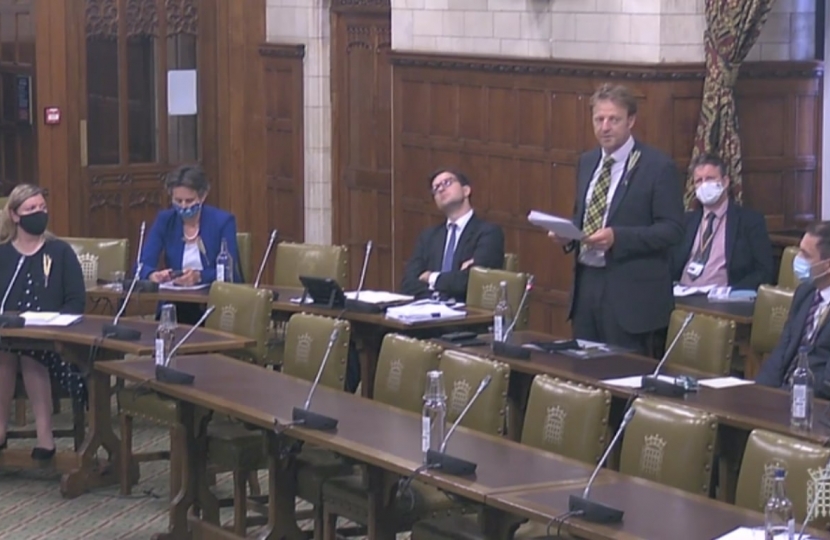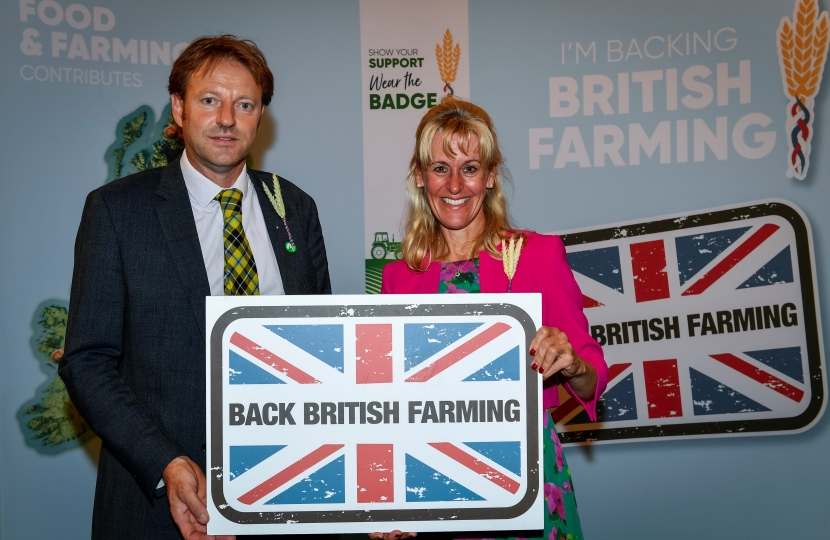Last week, as we returned to Parliament, there was both encouraging developments and concerning developments.
The encouraging development relates to the commitment to get a grip with our failing social care provision. Objectors are doing their upmost to present it as some sort of attack on our poorest households. The detail suggests something very different.
Approximately half of the cash collected through the new 1.25% Social Care Levy will be paid for by the countries top 14% of earners. An individual earning under £9,500 will not pay the levy. Someone earning £25,000 pa will contribute between £7 and £8K during their working life towards this Levy for their social care.
I’d much rather not see tax rises but Cornish residents have seen their council tax bills rise dramatically following George Osborne’s introduction of the Social Care Precept and have not seen any significant improvement in social care. 500 people in Cornwall are waiting for a social care package to be delivered and figures suggest over 100 vulnerable people are stuck in hospital rather than receiving care in their home close to loved ones.
So I agree that to justify this new tax on earnings and businesses we must deliver the reform of adult social care. We must increase the value we place on our care workforce, ensuring pay and pensions are attractive and we must provide the skills-development and opportunities our care staff deserve.
This Levy must also deliver the promised reforms to the care our loved ones receive. These promises include choice, control and an outstanding quality of care. As importantly, social care must be fair and accessible to all who need it and when they need it. Despite the fantastic commitment and tireless efforts of our care workforce even they would state that we do not often meet this level of care provision. I am in full support of Adult Social Care reform and accept that the Levy is needed to reach the best of care everyone deserves. But the work begins now to ensure this promised reform actually materialises.
The concerning developments from Parliament last week relate to a subtle watering-down of our civil liberties. The noise from Government in relation to the need for vaccine passports is deeply concerning. I supported the mandatory vaccination of care home staff believing that families should have confidence that loved ones would be as safe as possible when they are most vulnerable. However, I’m not convinced that vaccine passports for night clubs and large venues is justified or necessary and I’m really pleased the Government has now dropped the idea.
And talk of no jab, no job must end now. A discriminatory two tier culture is absolutely not in the interest of UK citizens.
My other concern is the rollout of the vaccine to our young teenagers especially talk of giving the child the right to consent against their parents. This is not the job of the State and I’m amongst a growing number of Conservative MPs very troubled by the drift against our civil liberties.
Now that the Chief Medical Officers and Government have effectively disregarded the advice of the Joint Committee on Vaccines and Immunisation (a committee that has guided the Government and nation in what has been a world-leading vaccine rollout for much of this year) I want to reiterate four things that many Conservative back-bench MPs, including myself, feel very strongly about in relation to the covid vaccine for 12 - 15 year olds: All children’s ability to receive an education must not be linked to their vaccination status, it is the parent’s right to determine what is in the best interests of their children. All children should be treated equally regardless of vaccination status and all schools must respect parental decisions, not merely seek consent.
Parents who have any reason to believe this is not the case over the coming weeks are invited to contact me with their concerns so that I can ensure the experience on the ground is in keeping with the stated intention of the Government which is to offer one dose to children with the full knowledge and consent of parents.
Also in Parliament this week we rallied to Back British Farming. Something that people have done with great enthusiasm during the pandemic as we all learnt how precarious the food supply chain can be. It is now time for the Home Office to back British farming by agreeing to our demands to continue access to seasonal agriculture workers next year and extend the pilot to include daffodils which means visas must run for 9 months rather than 6.
Whilst I had not heard any local dissent regarding the fact that citizens from overseas work in West Cornwall and on Scilly (doing the jobs that many of us avoid) the simple proposal of 30,000 workers for 9 months to harvest edible and non-edible crops meets the Home Office desire to manage the number of people working in the UK under the Government’s preferred visa scheme. This year we needed a further 1000 daffodils pickers with estimates that 274m stems went unpicked.
The daffodil producers did not sit back looking for the Government to fix the problem. They increased pay, advertised widely and locally and increased the hours available to work. Despite this Cornwall and on Scilly (where 78% of daffodils are grown) lost approximately 20% of the crop costing the Treasury millions in uncollected VAT.
To date I’ve met with the Chief Whip and the PM on this issue, I’ve discussed it with the Home Office Minister and Home Secretary Priti Patel and the Department of the Environment, Food and Rural Affairs.
The Environment, Food and Rural Affairs Select Committee of which I am a member has taken evidence and we launched this week a far reaching inquiry into the extent of the shortages of workers in food and farming.
And this week we had the opportunity to make clear our support of British Farming in a debate in Parliament to mark this critical sector. You can read my speech here.





